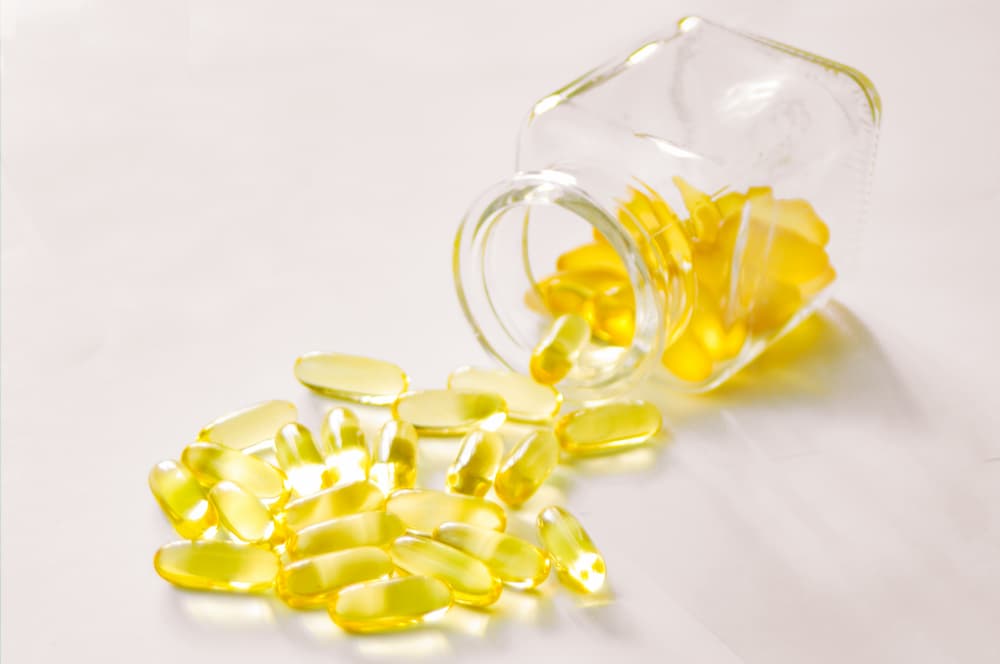
Here Comes The Sun
Looking forward to the summer? If you’re gearing up for the season, don’t forget to grab some sunscreen. Catching rays is a great way to get some Vitamin D and improve your mood [1], but it’s not without risk. Sunburn can be something people shrug off, but it’s actually really harmful. We all know that sunscreen can protect us from skin damage when applied properly, but what if there was an easier way to avoid burning up? A variety of sunblock pills and supplements have appeared on the market, promising to make skin care easy. No more rubbing cream all over your body, contorting on the beach like a maniac trying to smother your back! Pop one pill, and you’re protected from UV radiation. It sounds too good to be true, and perhaps it is. Let’s take a look at the facts behind sunblock pills and the best ways to protect your health this summer. Wondering why you get bitten more by mosquitoes than your friends? Find out here!
Feeling The Burn
Most of us have probably experienced a sunburn at some point in our lives. They can range from barely noticeable to blistering, peeling and painful. The latter burn is an uncomfortable experience, but is it dangerous? Plenty of people shrug off sunburns on holiday. In fact, some people seem to view them as a mark of pride!
The truth is that any sunburn is damaging to our skin, and carries with it a high potential risk to our health. Yes, many of us will experience sunburn in our lives and ‘get away with it’ – but the fact is that even once the pain and inflammation of the burn has subsided, the damage remains. It’s easy to forget that it’s a radiation burn from UV rays. Not only does it prematurely age the skin, but the harm goes beyond appearances – repeated sunburns increase your risk of developing skin cancer. In fact, the risk of melanoma could double after being sunburned five or more times [2].
There are some simple ways we can stay safe from the sun. These include sitting in the shade when the sun is brightest, wearing hats to protect our face and neck, and putting on sunglasses. But these aren’t foolproof, and we don’t want to avoid the sun completely either. So the most practical form of protection to use when enjoying the summer months has always been sunscreen.

How Does Sunscreen Protect Us?
Sunscreens typically protect us from UV radiation in a couple ways. Physical blocker sunscreens use ingredients such as zinc oxide or titanium dioxide, which scatter the rays from the sun before they can penetrate the skin. Chemical blocker sunscreens actually absorb the rays before they can cause you harm, typically with ingredients such as avobenzone [3].
When it comes to harmful UV radiation, there are two wavelengths we need to worry about. UVB is the common cause of sunburn, with prolonged exposure increasing the risks of melanoma and basal cell carcinoma. UVA can cause sun-induced skin damage and premature skin ageing. In the UK, the “Sun Protection Factor” (SPF) label you see on sunscreen packaging shows the level of protection from UVB, whereas the “UVA Star Rating” is an indicator of how well the cream protects you from UVA radiation. More specifically, the UVA Star Rating is meant to represent the percentage of UVA absorption in comparison to UVB absorption, rated from 0 to 5 [4].
Basically, you’ll want to look for “broad spectrum” sunscreen which has a high SPF as well as a high star rating. Generally, SPF beyond 15 + offers moderate protection, whereas 30+ grants higher protection. For the UVA rating, a star count of 4 to 5 represents a high level of protection.
Applying Sunscreen: How Much and How Often?
Sunscreen can provide your skin with excellent protection from the harmful effects of the sun’s rays, but it’s not a permanent forcefield! We sweat, we smear it against surfaces and clothing, we shower or go for a swim – all of which reduce the effectiveness of the sunscreen. In addition, if it’s spread too thin, it can’t perform to its full potential.
As a guideline, adults should be applying 2 teaspoons of sunscreen when covering your head, arms and neck, and 2 tablespoons if you’re covering your whole body. Perhaps the easiest way to apply it is before getting dressed or after getting dry from a shower, and you should be applying it at least half an hour before going out into the sun. You should also be reapplying sunscreen every couple of hours outside, particularly if you’ve been in water or have towel dried – even with “water resistant” sunscreens [5].
What About Sun Block Pills?
Sunscreen is great, and when combined with other sun safety measures it can really allow you to enjoy the summer without worrying about sunburns and skin damage. That being said, we have to admit it can be inconvenient: having to apply it every couple hours, more if we’re going swimming or sweating from exercise, having to smear it all over our bodies including hard to reach areas, making sure it isn’t out of date and is the correct SPF and UVA rating … some people find it too much of a hassle and stop using it, which no doubt contributes to sunburns, skin damage or maybe worse down the line.
What if there was a simpler way to protect your body from UV radiation? What if you could take a pill once a day that kept you safe in the heat of the sun? Enter: sun block pills.
Sun block or sunscreen pills and supplements have been marketed as a sun safety option or even as an alternative to sunscreen. Many of them claim to contain ingredients that naturally boost the body’s protection from UV rays. One of the touted extracts is from Polypodium leucotomos, a tropical fern native to the Americas. The plant has long been used as a well-tolerated traditional medicine, and has more recently been assessed as a treatment for skin damage and disorders. In fact, clinical studies report that Polypodium leucotomos extracts could effectively protect our skin from both UVB and UVA light [6], with oral administration being found effective and with a low risk of side effects.
So are these supplements actually effective? The extract is certainly promising, but don’t buy into sunblock pills yet. After all, the FDA has warned consumers that sunblock pills don’t effectively protect you from the sun [7]. So what should we believe about them?

NOT a Replacement For Sunscreen
Some of the ingredients found in sunblock pills may have health benefits and according to some studies could help protect us from UV radiation. However, they cannot be relied on to prevent sunburns. Simply put, sunblock pills cannot replace sunscreen as an effective protective measure against the sun. If you decide to take sunblock supplements because you believe they could help, they need to be taken in addition to the proper application of sunscreen and other sun safety measures. Supplements alone won’t stop you from getting skin damage and sunburns from being outside, even if they turn out to be effective.
So: apply sunscreen thoroughly, use the shade, wear some shades and a hat, stay hydrated, don’t rely on sunblock supplements, and enjoy the sun!
Sources
- Benefits of Sunlight: A Bright Spot for Human Health | PubMed
- Sunburn & Your Skin | Skin Cancer Foundation
- The Science of Sunscreen | Harvard Health Publishing
- Sun Safety | NHS Fit For Travel
- Sunscreen and Sun Safety | NHS
- Polypodium Leucotomos – An Overview of Basic Investigative Findings | PubMed
- Sunscreen In A Pill? | Harvard Health Publishing
Further Reading
- How To Stay Safe In The Sun| British Skin Foundation
- Ways To Enjoy The Sun Safely | Cancer Research UK






